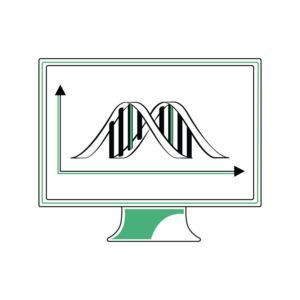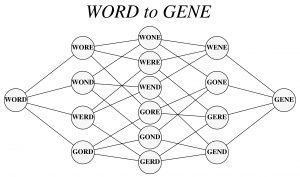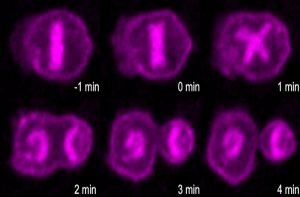Enter your address to receive notifications about new posts to your email.
Science & Publishing
-
Science & Publishing
Extra copies of the genome can be a bonus
Written by members of the GSA Early Career Scientist Communication and Outreach Subcommittee: Carla Bautista Rodriguez, Université Laval; Zach Grochau-Wright, University of Arizona; Angel F. Cisneros Caballero, Université Laval Disrupting the complex and delicate balance of a genome can have devastating consequences. In humans, for example, extra copies of individual chromosomes can result in diseases,…
-
Science & Publishing
How a lab studying Down Syndrome created an important resource for COVID-19 research
Guest post by Jennifer Tsang. Years ago, Sarah Edie and Norann Zaghloul pored over 50,000 zebrafish embryos, examining them for developmental phenotypes. They had previously injected each of these embryos with a plasmid expressing a gene from chromosome 21. Their goal was to understand how overexpression of specific genes on chromosome 21 affected early development1.…
-
Science & Publishing
James F. Crow Award talks at TAGC 2020
The James F. Crow Early Career Researcher Award recognizes outstanding achievements by students and recent PhDs presenting their work at the Population, Evolutionary, and Quantitative Genetics (PEQG) Conference, which was part of TAGC Online in 2020. The 2020 winner and finalists for this prestigious PEQG award spoke in a high-profile session at the conference. Check…
-
Science & Publishing
How bioinformatics can help fill the therapeutic drug pipeline
Written by members of the GSA Early Career Scientist Communication and Outreach Subcommittee: Angel F. Cisneros Caballero, Université Laval; Adelita Mendoza, PhD, Washington University; Narjes Alfuraiji, University of Manchester; Anna Bajur, Max Planck Institute of Molecular Cell Biology and Genetics During the current global pandemic, public attention is increasingly falling on the process of drug…
-
Science & Publishing
Video Highlights from TAGC 2020 Online
From April 22–25, TAGC 2020 Online brought scientists from multiple research communities together to share their research and stay connected. Videos from select TAGC cross-community sessions are now available on YouTube. Those who weren’t able to participate in the conference in April, check out the recordings below! Diversity, Equity, and Inclusion Speakers: Scott Barolo, University of Michigan…
-
Science & Publishing
Three GENETICS articles from 2019 recognized with Editors’ Choice Awards
Congratulations to the winners of the Editors’ Choice Awards for outstanding articles published in GENETICS in 2019! The journal’s Editorial Board considered a diverse range of articles, finding many papers worthy of recognition. After much deliberation, they settled on one exceptional article for each of the three award categories: molecular genetics, population and evolutionary genetics, and quantitative genetics.…
-
Science & Publishing
One life, many ideas: A centennial homage to John Maynard Smith
Guest post by C. Brandon Ogbunugafor, Assistant Professor at Brown University. John Maynard Smith, born in London on January 6, 1920, was one of the great iconoclasts of the post neo-Darwinian synthesis era, a cult figure whose life was defined by notable contributions across a wide breadth of subfields [1]. He not only authored numerous…
-
Science & Publishing
GSA supports open access—but we need time for a full transition
Last Friday, I was made aware of an executive order being finalized by the White House that reportedly mandates immediate public access to journal articles describing federally funded research. If this policy were enacted as is, many scientific societies would have to severely cut their services to the scientific community, such as peer-reviewed journals, travel…
-
Science & Publishing
Coffee and epistasis: a scientific story of sips and SNPs
Guest authors C. Brandon Ogbunugafor and Rafael F. Guerrero demystify higher order epistasis through a short story about the perfect brew. Epistasis is the flavor of the month Epistasis is one of the most popular and provocative topics in modern genetics. It has many different definitions, but one especially useful one is that epistasis is…
-
Science & Publishing
Finding fresh mutations
Improved duplex sequencing identifies spontaneous mutations in bacteria without long-term culturing. Spontaneous mutations are the driving force of evolution, yet, our ability to detect and study them can be limited to mutations that accumulate clonally. Sequencing technology often cannot identify very rare variants or discriminate between bona fide mutations and errors introduced during sample preparation.…
-
Science & Publishing
Unequal divisions of death
Apoptotic pathway promotes asymmetric cell division during C. elegans development. Cell division doesn’t always produce identical daughter cells; often, the demands of multicellular development require cells to split into two quite different daughters with quite different fates. These “asymmetric” divisions are needed so that cells can differentiate and specialize, and some cells are even programmed…











